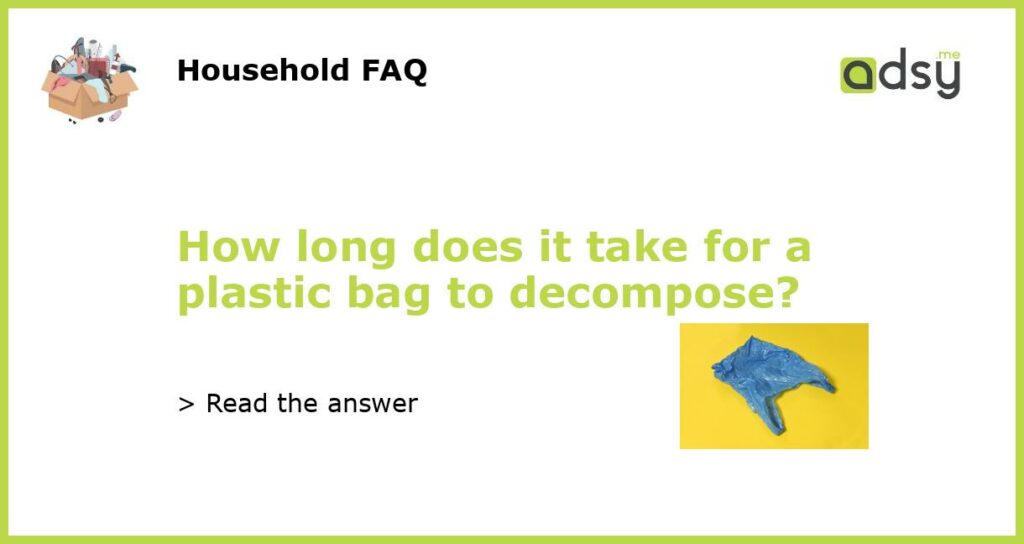Plastic Bags and Environmental Impact
Plastic bags have become a ubiquitous part of our lives. They are lightweight, convenient, and provide a cost-effective way to carry groceries and other items. However, their usage and disposal come at a significant environmental cost. One of the key concerns is the time it takes for plastic bags to decompose.
Factors Affecting Decomposition Time
The time it takes for a plastic bag to decompose can vary significantly, depending on various factors. The primary factors that influence decomposition include the type of plastic, environmental conditions, and exposure to sunlight.
Plastic Types and Decomposition Time
Plastic bags are typically made from high-density polyethylene (HDPE) or low-density polyethylene (LDPE). HDPE bags are more resistant to degradation and can take up to 20 years or more to decompose. LDPE bags, on the other hand, can take anywhere from 10 to 1,000 years to break down.
Environmental Conditions and Decomposition
The rate of decomposition is also influenced by the environmental conditions in which the plastic bag is disposed of. In landfills, where the absence of oxygen slows down degradation, it can take even longer for plastic bags to decompose. However, in certain conditions such as warm and moist environments, the decomposition process can be accelerated.
The Impact of Sunlight on Decomposition
Exposure to sunlight, specifically ultraviolet (UV) light, can accelerate the breakdown of certain plastics. When plastic bags are exposed to sunlight, the UV radiation weakens the molecular chains, causing the material to become brittle and more susceptible to fragmentation. This process, known as photodegradation, can speed up the decomposition of plastic bags.






